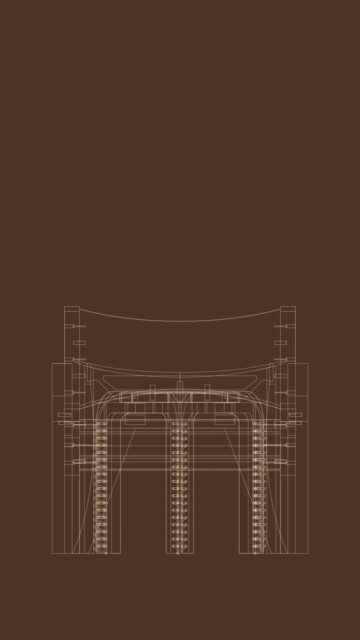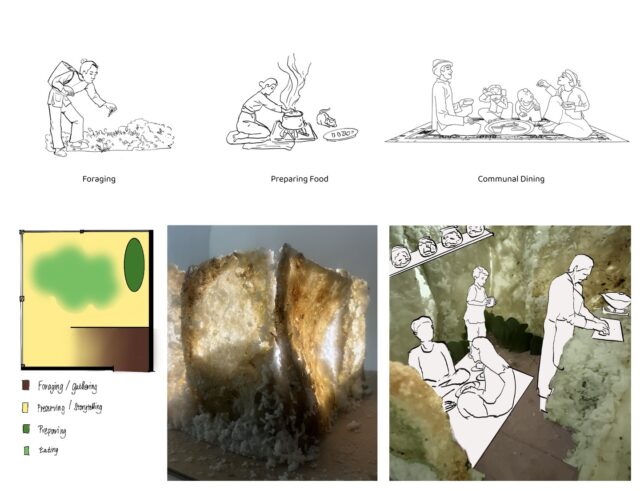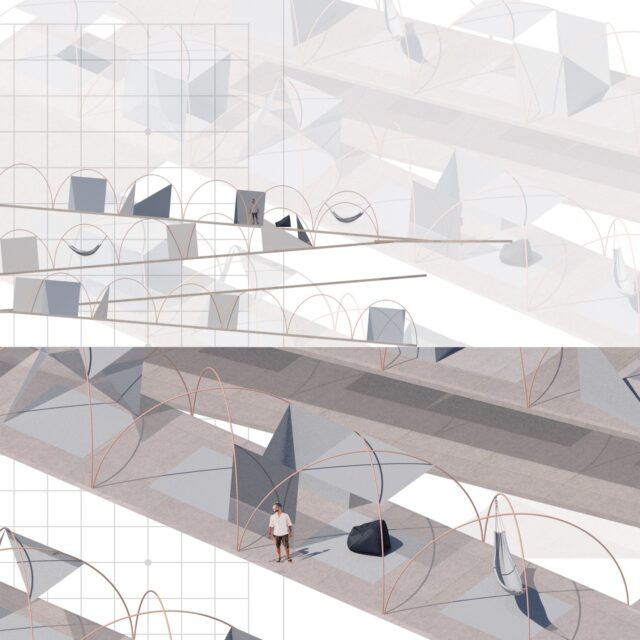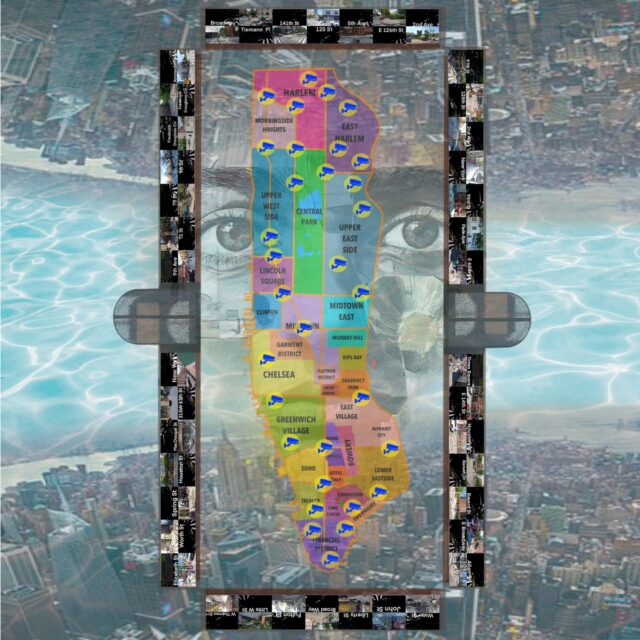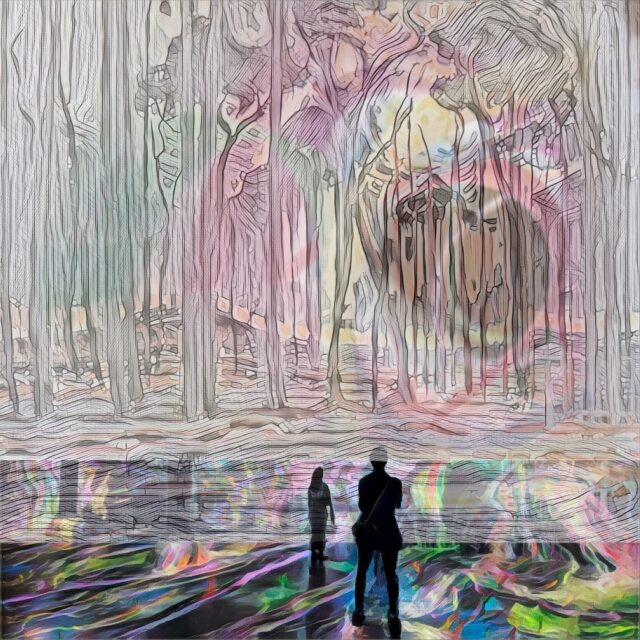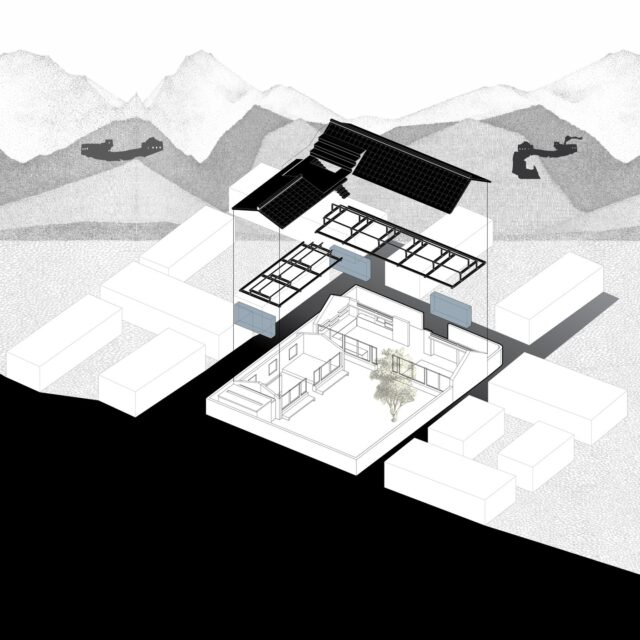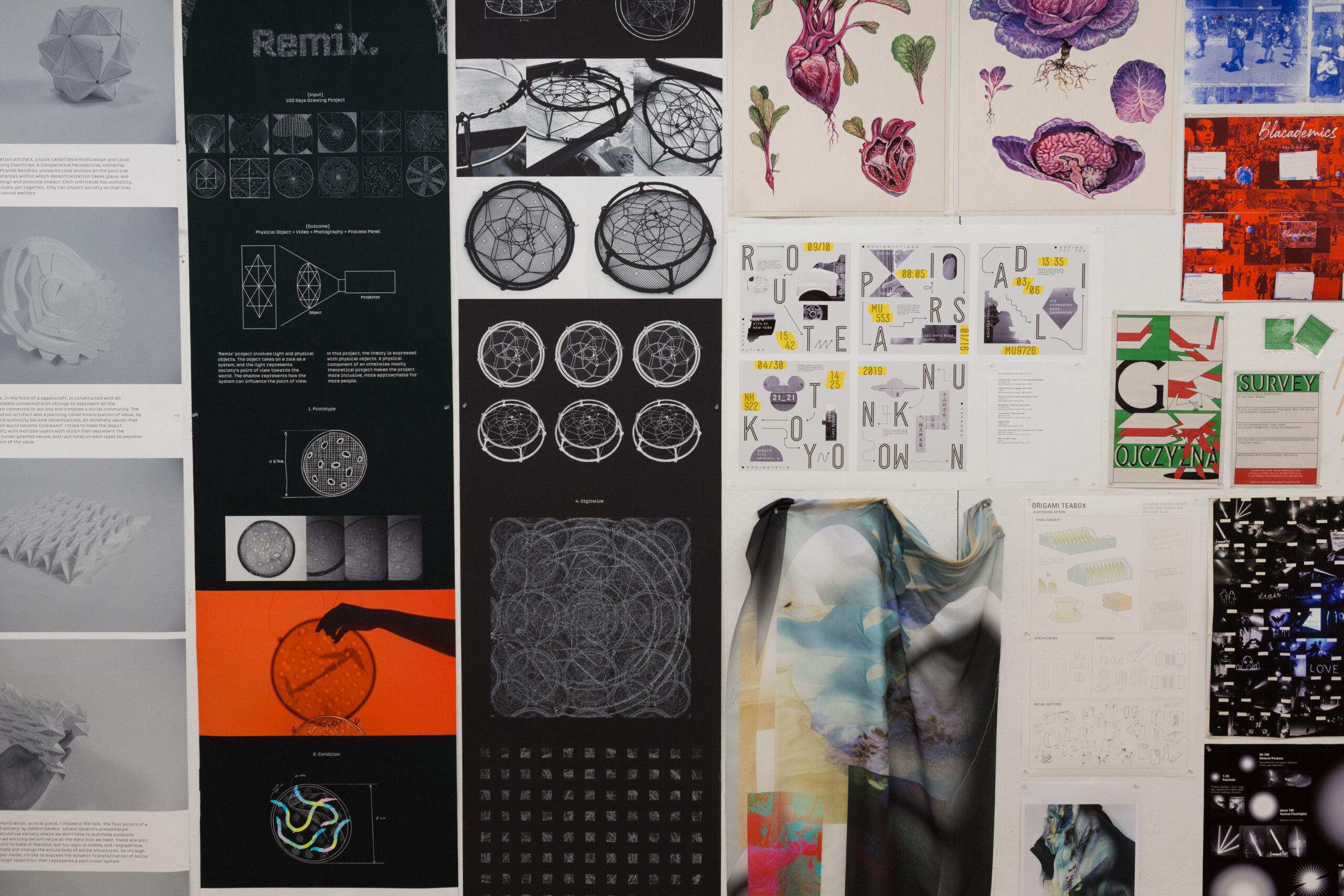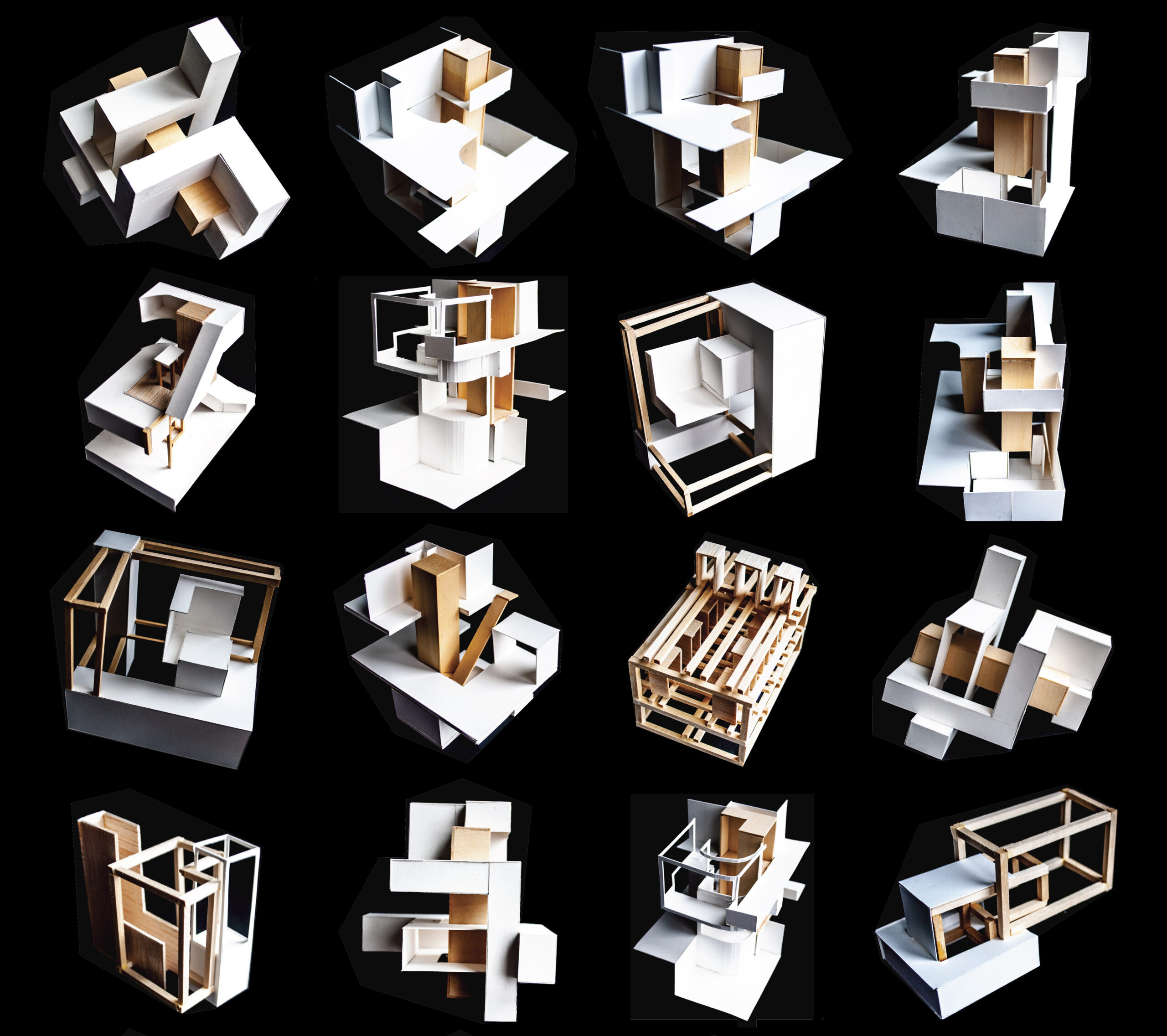- School of Design>
- Interior Design>
- Interior Design, Minor
Minors allow students greater opportunity to add cross-disciplinary knowledge and competencies to their major program of study.
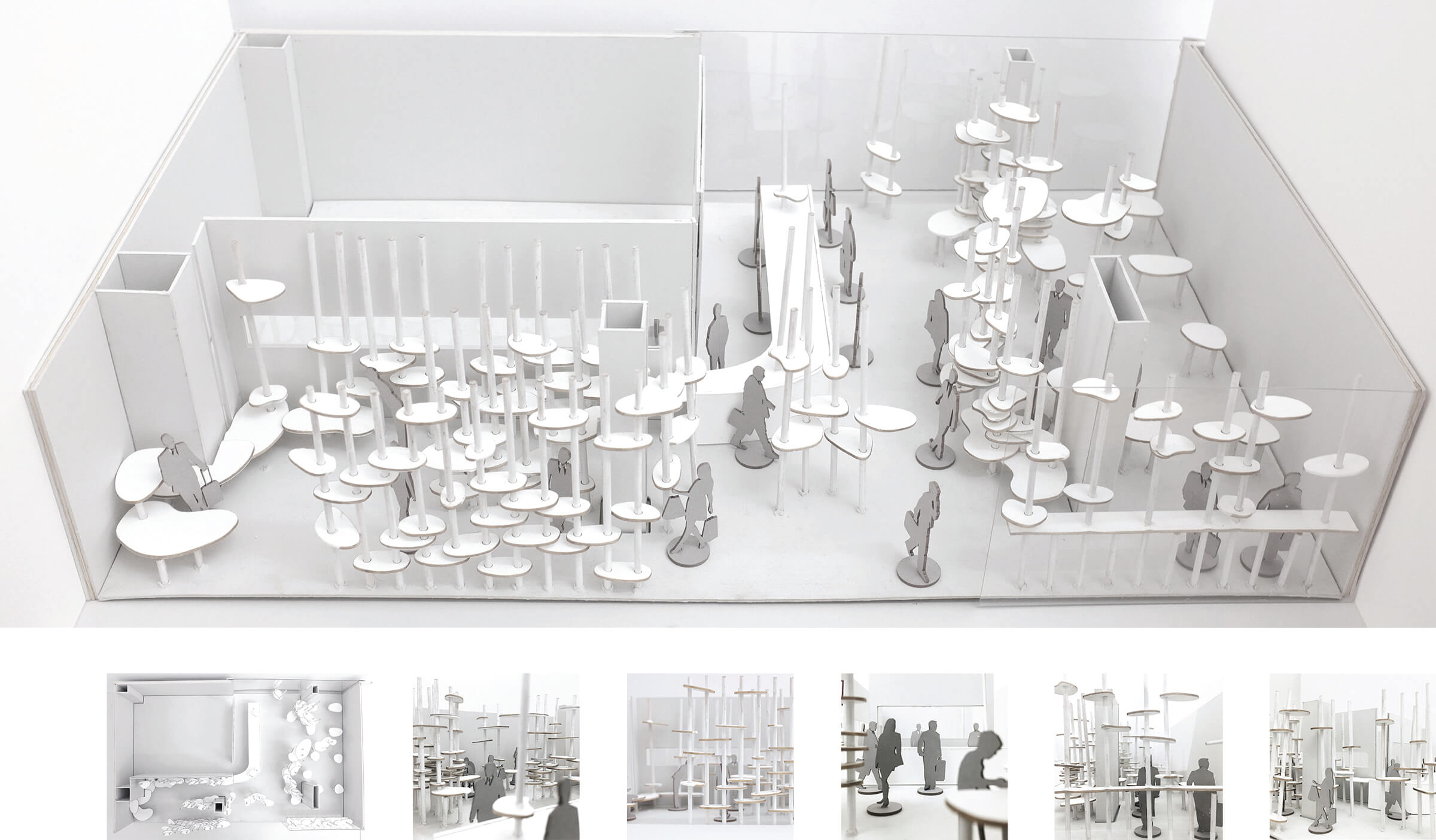
- Type
- Undergraduate
- Courses
- Academic Requirements
- School and Department
-
School of Design,
Interior Design
The Department of Interior Design offers a 15-credit minor to undergraduate architecture, construction management, and industrial design students, as well as interested students in other fields of study. Students may apply to the minor after meeting with the department as early as the first semester of the sophomore year. Determination of the required studio level and other courses to complete the minor will be based upon a review of the student’s transcript (and portfolio). The completion of the minor will be noted on the student’s transcript but will not be shown on the diploma.
Minor Coordinator Tania Branquinho tbranqui@pratt.edu 718.636.3630
Minor Coordinator Tania Branquinho tbranqui@pratt.edu 718.636.3630
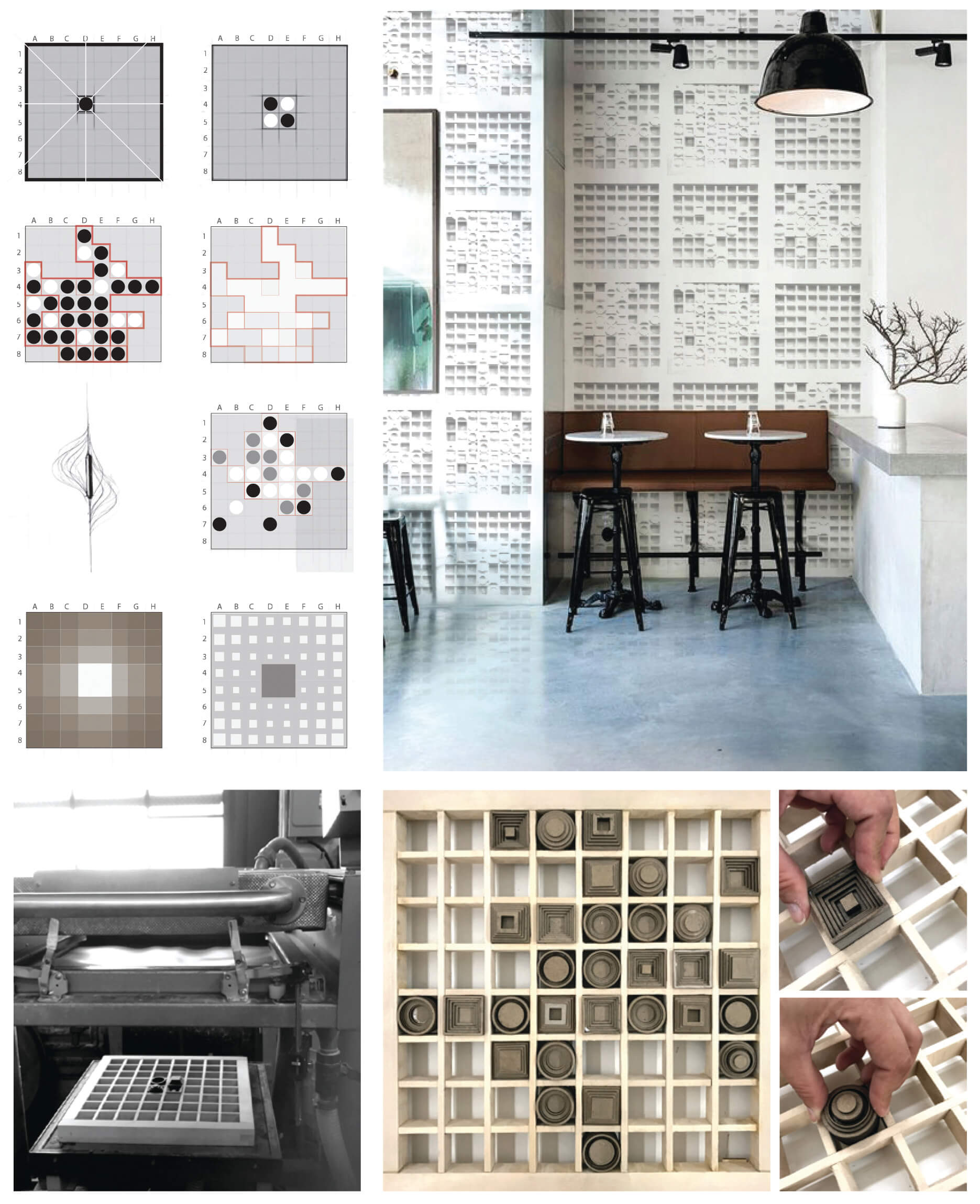




Check out full story link in Bio.
Last Information Session of the year tomorrow!!! 12/16 - 9am EST
@pratt_sod
@prattinstitute
@theorotea
@therightangle.podcast
@elleliudesign
@prattalumninyc
@prattalumn
4 weeks ago
Interior Design INT-201 Design I - presented their Studio Final today!!! Amazing work!
We have one last Undergraduate Information Session online this Saturday at 10:30am EST - visit our website to register.
1 month ago
![cocoon[s]
MFA Core Design Studio · Spring 2025
The project was presented to the AIANY Center for Architecture - Design for Risk and Reconstruction committee, highlighting the students’ research and design approach to adaptive, community-centered resilience.
In response to the geopolitical fragmentation experienced by displaced and under housed communities, cocoon[s] explores how food is shared, prepared, and experienced when the idea of “home” is uncertain.
Through research on global displacement typologies from dry, remote terrains to dense urban zones - the studio examined housing systems, environmental health, and cultural dining rituals to understand how communal spaces evolve under crisis.
The proposal re-imagines a repurposed shipping container as a deploy-able, transportable module for food distribution and gathering. A tensile fabric network extends from its core, unfolding into adaptable enclosures that blur the boundary between interior and exterior offering both safeness and connection.
✨ Developed by Core Year MFA Design students:
Anjali Dave, Arianna Correa, Brissa Ramos, Elizabeth Hammett, Hang Min, Henry Domst, Jiahui Tang, Kathy Chiu, Katharine Oliver, Leah Toscano, Megan Pulling, Minqi Wu, Pornpitcha Ruampongpattana, Soohyun Ahn, and Stephen Shkreli.
Professors: Sheryl Kasak & Alvaro Gomez-Selles
@design_for_risk
@prattinstitute
@pratt_sod
@centerforarch
#pratt_sod #MFADesign #PrattDesign #DesignResearch #CoreStudio #Spring2025 #RefugeeArchitecture #AdaptiveDesign #FoodAndSpace #SpatialResilience](https://scontent-ord5-3.cdninstagram.com/v/t51.82787-15/570127678_18095266450878342_4598715533788163756_n.jpg?stp=dst-jpg_e35_tt6&_nc_cat=107&ccb=7-5&_nc_sid=18de74&efg=eyJlZmdfdGFnIjoiQ0FST1VTRUxfSVRFTS5iZXN0X2ltYWdlX3VybGdlbi5DMyJ9&_nc_ohc=fLnDRLZTJeAQ7kNvwE9AAq-&_nc_oc=Adl0IJ0LzvDIDQG5T4XRb--dhk9HUjNkfujTMJ4Xyt9i_syr3pdbDgT_7sO44SQ9tO4&_nc_zt=23&_nc_ht=scontent-ord5-3.cdninstagram.com&edm=ANo9K5cEAAAA&_nc_gid=vi6jDbYhtZfhVWHSvUnKwQ&oh=00_AfoI52NGzuIQF_usdIa7odVy9EawIDenowy-9u6KHVITXQ&oe=696A5F70)
![cocoon[s]
MFA Core Design Studio · Spring 2025
The project was presented to the AIANY Center for Architecture - Design for Risk and Reconstruction committee, highlighting the students’ research and design approach to adaptive, community-centered resilience.
In response to the geopolitical fragmentation experienced by displaced and under housed communities, cocoon[s] explores how food is shared, prepared, and experienced when the idea of “home” is uncertain.
Through research on global displacement typologies from dry, remote terrains to dense urban zones - the studio examined housing systems, environmental health, and cultural dining rituals to understand how communal spaces evolve under crisis.
The proposal re-imagines a repurposed shipping container as a deploy-able, transportable module for food distribution and gathering. A tensile fabric network extends from its core, unfolding into adaptable enclosures that blur the boundary between interior and exterior offering both safeness and connection.
✨ Developed by Core Year MFA Design students:
Anjali Dave, Arianna Correa, Brissa Ramos, Elizabeth Hammett, Hang Min, Henry Domst, Jiahui Tang, Kathy Chiu, Katharine Oliver, Leah Toscano, Megan Pulling, Minqi Wu, Pornpitcha Ruampongpattana, Soohyun Ahn, and Stephen Shkreli.
Professors: Sheryl Kasak & Alvaro Gomez-Selles
@design_for_risk
@prattinstitute
@pratt_sod
@centerforarch
#pratt_sod #MFADesign #PrattDesign #DesignResearch #CoreStudio #Spring2025 #RefugeeArchitecture #AdaptiveDesign #FoodAndSpace #SpatialResilience](https://scontent-ord5-2.cdninstagram.com/v/t51.82787-15/573636833_18095266459878342_813195507531287912_n.jpg?stp=dst-jpg_e35_tt6&_nc_cat=103&ccb=7-5&_nc_sid=18de74&efg=eyJlZmdfdGFnIjoiQ0FST1VTRUxfSVRFTS5iZXN0X2ltYWdlX3VybGdlbi5DMyJ9&_nc_ohc=_BJkmpdTLusQ7kNvwHryOXy&_nc_oc=AdnGcddlvwt5GOnRc9dMBT7NaFDHre5ru6NX2G-Wt7lmN05EJXUEJz3rNPCqgP2FnQs&_nc_zt=23&_nc_ht=scontent-ord5-2.cdninstagram.com&edm=ANo9K5cEAAAA&_nc_gid=vi6jDbYhtZfhVWHSvUnKwQ&oh=00_AfodPAOEKWFjmaHNqOeO8nxlQm8BwYIN729_j8GG8Fh0Nw&oe=696A58FD)
![cocoon[s]
MFA Core Design Studio · Spring 2025
The project was presented to the AIANY Center for Architecture - Design for Risk and Reconstruction committee, highlighting the students’ research and design approach to adaptive, community-centered resilience.
In response to the geopolitical fragmentation experienced by displaced and under housed communities, cocoon[s] explores how food is shared, prepared, and experienced when the idea of “home” is uncertain.
Through research on global displacement typologies from dry, remote terrains to dense urban zones - the studio examined housing systems, environmental health, and cultural dining rituals to understand how communal spaces evolve under crisis.
The proposal re-imagines a repurposed shipping container as a deploy-able, transportable module for food distribution and gathering. A tensile fabric network extends from its core, unfolding into adaptable enclosures that blur the boundary between interior and exterior offering both safeness and connection.
✨ Developed by Core Year MFA Design students:
Anjali Dave, Arianna Correa, Brissa Ramos, Elizabeth Hammett, Hang Min, Henry Domst, Jiahui Tang, Kathy Chiu, Katharine Oliver, Leah Toscano, Megan Pulling, Minqi Wu, Pornpitcha Ruampongpattana, Soohyun Ahn, and Stephen Shkreli.
Professors: Sheryl Kasak & Alvaro Gomez-Selles
@design_for_risk
@prattinstitute
@pratt_sod
@centerforarch
#pratt_sod #MFADesign #PrattDesign #DesignResearch #CoreStudio #Spring2025 #RefugeeArchitecture #AdaptiveDesign #FoodAndSpace #SpatialResilience](https://scontent-ord5-2.cdninstagram.com/v/t51.82787-15/575630060_18095266471878342_7728119017565625581_n.jpg?stp=dst-jpg_e35_tt6&_nc_cat=104&ccb=7-5&_nc_sid=18de74&efg=eyJlZmdfdGFnIjoiQ0FST1VTRUxfSVRFTS5iZXN0X2ltYWdlX3VybGdlbi5DMyJ9&_nc_ohc=S3oUawaJh4sQ7kNvwEI3heC&_nc_oc=AdkdzI8YFaC2cnywcH9RVXg-5aL8Fj7dmvlCENTu_RLErFVbWeO__MSyuoh0o5CYcrQ&_nc_zt=23&_nc_ht=scontent-ord5-2.cdninstagram.com&edm=ANo9K5cEAAAA&_nc_gid=vi6jDbYhtZfhVWHSvUnKwQ&oh=00_AfrU4eRDIJZiDu1JJhl17u6h81zjtQXyEpHKSCKtef4xYw&oe=696A70AA)
![cocoon[s]
MFA Core Design Studio · Spring 2025
The project was presented to the AIANY Center for Architecture - Design for Risk and Reconstruction committee, highlighting the students’ research and design approach to adaptive, community-centered resilience.
In response to the geopolitical fragmentation experienced by displaced and under housed communities, cocoon[s] explores how food is shared, prepared, and experienced when the idea of “home” is uncertain.
Through research on global displacement typologies from dry, remote terrains to dense urban zones - the studio examined housing systems, environmental health, and cultural dining rituals to understand how communal spaces evolve under crisis.
The proposal re-imagines a repurposed shipping container as a deploy-able, transportable module for food distribution and gathering. A tensile fabric network extends from its core, unfolding into adaptable enclosures that blur the boundary between interior and exterior offering both safeness and connection.
✨ Developed by Core Year MFA Design students:
Anjali Dave, Arianna Correa, Brissa Ramos, Elizabeth Hammett, Hang Min, Henry Domst, Jiahui Tang, Kathy Chiu, Katharine Oliver, Leah Toscano, Megan Pulling, Minqi Wu, Pornpitcha Ruampongpattana, Soohyun Ahn, and Stephen Shkreli.
Professors: Sheryl Kasak & Alvaro Gomez-Selles
@design_for_risk
@prattinstitute
@pratt_sod
@centerforarch
#pratt_sod #MFADesign #PrattDesign #DesignResearch #CoreStudio #Spring2025 #RefugeeArchitecture #AdaptiveDesign #FoodAndSpace #SpatialResilience](https://scontent-ord5-3.cdninstagram.com/v/t51.82787-15/572010517_18095266480878342_986544942018871299_n.jpg?stp=dst-jpg_e35_tt6&_nc_cat=109&ccb=7-5&_nc_sid=18de74&efg=eyJlZmdfdGFnIjoiQ0FST1VTRUxfSVRFTS5iZXN0X2ltYWdlX3VybGdlbi5DMyJ9&_nc_ohc=K2fv6FgJkvEQ7kNvwE_Mgp9&_nc_oc=Admu8_hPqZHlT0R2aLUgakGw5XqKoovXw82213SUiUad4O0A5Qnf8hc_CwukaoMLsso&_nc_zt=23&_nc_ht=scontent-ord5-3.cdninstagram.com&edm=ANo9K5cEAAAA&_nc_gid=vi6jDbYhtZfhVWHSvUnKwQ&oh=00_AfpZQcwvnVvxEjTgtGr3QnCd_GxKeBlt2mbSXXyHisokDg&oe=696A633C)
![cocoon[s]
MFA Core Design Studio · Spring 2025
The project was presented to the AIANY Center for Architecture - Design for Risk and Reconstruction committee, highlighting the students’ research and design approach to adaptive, community-centered resilience.
In response to the geopolitical fragmentation experienced by displaced and under housed communities, cocoon[s] explores how food is shared, prepared, and experienced when the idea of “home” is uncertain.
Through research on global displacement typologies from dry, remote terrains to dense urban zones - the studio examined housing systems, environmental health, and cultural dining rituals to understand how communal spaces evolve under crisis.
The proposal re-imagines a repurposed shipping container as a deploy-able, transportable module for food distribution and gathering. A tensile fabric network extends from its core, unfolding into adaptable enclosures that blur the boundary between interior and exterior offering both safeness and connection.
✨ Developed by Core Year MFA Design students:
Anjali Dave, Arianna Correa, Brissa Ramos, Elizabeth Hammett, Hang Min, Henry Domst, Jiahui Tang, Kathy Chiu, Katharine Oliver, Leah Toscano, Megan Pulling, Minqi Wu, Pornpitcha Ruampongpattana, Soohyun Ahn, and Stephen Shkreli.
Professors: Sheryl Kasak & Alvaro Gomez-Selles
@design_for_risk
@prattinstitute
@pratt_sod
@centerforarch
#pratt_sod #MFADesign #PrattDesign #DesignResearch #CoreStudio #Spring2025 #RefugeeArchitecture #AdaptiveDesign #FoodAndSpace #SpatialResilience](https://scontent-ord5-2.cdninstagram.com/v/t51.82787-15/572168675_18095266489878342_2702254623789396829_n.jpg?stp=dst-jpg_e35_tt6&_nc_cat=104&ccb=7-5&_nc_sid=18de74&efg=eyJlZmdfdGFnIjoiQ0FST1VTRUxfSVRFTS5iZXN0X2ltYWdlX3VybGdlbi5DMyJ9&_nc_ohc=HVtEcQy8xNcQ7kNvwFcOANr&_nc_oc=AdlXFGVYiWC9ftSCl4brsW0mHQ4cqRh3Dx2G9nbaHjvRjMqgcOVo2lwkOxkvROB8u9I&_nc_zt=23&_nc_ht=scontent-ord5-2.cdninstagram.com&edm=ANo9K5cEAAAA&_nc_gid=vi6jDbYhtZfhVWHSvUnKwQ&oh=00_Afpcm5ajH0CJzOOXWhj38FPT4DSaLjYtm8DMExONSz6diA&oe=696A54F9)
![cocoon[s]
MFA Core Design Studio · Spring 2025
The project was presented to the AIANY Center for Architecture - Design for Risk and Reconstruction committee, highlighting the students’ research and design approach to adaptive, community-centered resilience.
In response to the geopolitical fragmentation experienced by displaced and under housed communities, cocoon[s] explores how food is shared, prepared, and experienced when the idea of “home” is uncertain.
Through research on global displacement typologies from dry, remote terrains to dense urban zones - the studio examined housing systems, environmental health, and cultural dining rituals to understand how communal spaces evolve under crisis.
The proposal re-imagines a repurposed shipping container as a deploy-able, transportable module for food distribution and gathering. A tensile fabric network extends from its core, unfolding into adaptable enclosures that blur the boundary between interior and exterior offering both safeness and connection.
✨ Developed by Core Year MFA Design students:
Anjali Dave, Arianna Correa, Brissa Ramos, Elizabeth Hammett, Hang Min, Henry Domst, Jiahui Tang, Kathy Chiu, Katharine Oliver, Leah Toscano, Megan Pulling, Minqi Wu, Pornpitcha Ruampongpattana, Soohyun Ahn, and Stephen Shkreli.
Professors: Sheryl Kasak & Alvaro Gomez-Selles
@design_for_risk
@prattinstitute
@pratt_sod
@centerforarch
#pratt_sod #MFADesign #PrattDesign #DesignResearch #CoreStudio #Spring2025 #RefugeeArchitecture #AdaptiveDesign #FoodAndSpace #SpatialResilience](https://scontent-ord5-3.cdninstagram.com/v/t51.82787-15/572767107_18095266498878342_2562879264948796077_n.jpg?stp=dst-jpg_e35_tt6&_nc_cat=100&ccb=7-5&_nc_sid=18de74&efg=eyJlZmdfdGFnIjoiQ0FST1VTRUxfSVRFTS5iZXN0X2ltYWdlX3VybGdlbi5DMyJ9&_nc_ohc=WDUQT46h8osQ7kNvwGZqWIP&_nc_oc=AdkYSUw8DBZu-dOEwzwjKhctjj1sXjQB4boBtRcpe8qpFr3STiBb0xRKS6YfxI6GULA&_nc_zt=23&_nc_ht=scontent-ord5-3.cdninstagram.com&edm=ANo9K5cEAAAA&_nc_gid=vi6jDbYhtZfhVWHSvUnKwQ&oh=00_Afrzc72sZH_0wPy-K9JZh7tIzKDsPQwfSCo73J0qOLUbmQ&oe=696A6786)
![cocoon[s]
MFA Core Design Studio · Spring 2025
The project was presented to the AIANY Center for Architecture - Design for Risk and Reconstruction committee, highlighting the students’ research and design approach to adaptive, community-centered resilience.
In response to the geopolitical fragmentation experienced by displaced and under housed communities, cocoon[s] explores how food is shared, prepared, and experienced when the idea of “home” is uncertain.
Through research on global displacement typologies from dry, remote terrains to dense urban zones - the studio examined housing systems, environmental health, and cultural dining rituals to understand how communal spaces evolve under crisis.
The proposal re-imagines a repurposed shipping container as a deploy-able, transportable module for food distribution and gathering. A tensile fabric network extends from its core, unfolding into adaptable enclosures that blur the boundary between interior and exterior offering both safeness and connection.
✨ Developed by Core Year MFA Design students:
Anjali Dave, Arianna Correa, Brissa Ramos, Elizabeth Hammett, Hang Min, Henry Domst, Jiahui Tang, Kathy Chiu, Katharine Oliver, Leah Toscano, Megan Pulling, Minqi Wu, Pornpitcha Ruampongpattana, Soohyun Ahn, and Stephen Shkreli.
Professors: Sheryl Kasak & Alvaro Gomez-Selles
@design_for_risk
@prattinstitute
@pratt_sod
@centerforarch
#pratt_sod #MFADesign #PrattDesign #DesignResearch #CoreStudio #Spring2025 #RefugeeArchitecture #AdaptiveDesign #FoodAndSpace #SpatialResilience](https://scontent-ord5-3.cdninstagram.com/v/t51.82787-15/574279100_18095266507878342_2349032692168594338_n.jpg?stp=dst-jpg_e35_tt6&_nc_cat=107&ccb=7-5&_nc_sid=18de74&efg=eyJlZmdfdGFnIjoiQ0FST1VTRUxfSVRFTS5iZXN0X2ltYWdlX3VybGdlbi5DMyJ9&_nc_ohc=dGeA7g0n5g0Q7kNvwF7uEru&_nc_oc=AdmobqEd8MguhUs8gtWp9i_FDxBW_xA6sDs2MObdBV7yg4EY8Yzsty9UqgqYoHAQH2w&_nc_zt=23&_nc_ht=scontent-ord5-3.cdninstagram.com&edm=ANo9K5cEAAAA&_nc_gid=vi6jDbYhtZfhVWHSvUnKwQ&oh=00_Afqe5Bmtzo_Vjyu7lnNF2Eft-U641zAYakGkr0wnP_TqUQ&oe=696A571B)
![cocoon[s]
MFA Core Design Studio · Spring 2025
The project was presented to the AIANY Center for Architecture - Design for Risk and Reconstruction committee, highlighting the students’ research and design approach to adaptive, community-centered resilience.
In response to the geopolitical fragmentation experienced by displaced and under housed communities, cocoon[s] explores how food is shared, prepared, and experienced when the idea of “home” is uncertain.
Through research on global displacement typologies from dry, remote terrains to dense urban zones - the studio examined housing systems, environmental health, and cultural dining rituals to understand how communal spaces evolve under crisis.
The proposal re-imagines a repurposed shipping container as a deploy-able, transportable module for food distribution and gathering. A tensile fabric network extends from its core, unfolding into adaptable enclosures that blur the boundary between interior and exterior offering both safeness and connection.
✨ Developed by Core Year MFA Design students:
Anjali Dave, Arianna Correa, Brissa Ramos, Elizabeth Hammett, Hang Min, Henry Domst, Jiahui Tang, Kathy Chiu, Katharine Oliver, Leah Toscano, Megan Pulling, Minqi Wu, Pornpitcha Ruampongpattana, Soohyun Ahn, and Stephen Shkreli.
Professors: Sheryl Kasak & Alvaro Gomez-Selles
@design_for_risk
@prattinstitute
@pratt_sod
@centerforarch
#pratt_sod #MFADesign #PrattDesign #DesignResearch #CoreStudio #Spring2025 #RefugeeArchitecture #AdaptiveDesign #FoodAndSpace #SpatialResilience](https://scontent-ord5-2.cdninstagram.com/v/t51.82787-15/572768581_18095266516878342_4094506681552896633_n.jpg?stp=dst-jpg_e35_tt6&_nc_cat=103&ccb=7-5&_nc_sid=18de74&efg=eyJlZmdfdGFnIjoiQ0FST1VTRUxfSVRFTS5iZXN0X2ltYWdlX3VybGdlbi5DMyJ9&_nc_ohc=HW_vGRUvcFYQ7kNvwEOm4DW&_nc_oc=AdmVkxKL7FqccmI-QVsGpTt5Ih4n_XtbdLFiVidD-6gYtvlXgd0A9rGA77Reqe7IO8A&_nc_zt=23&_nc_ht=scontent-ord5-2.cdninstagram.com&edm=ANo9K5cEAAAA&_nc_gid=vi6jDbYhtZfhVWHSvUnKwQ&oh=00_AfpxWohty6hJUJEMMd5NezdWAqXCBbbPGRRMhFfDY2enuw&oe=696A4CA8)
![cocoon[s]
MFA Core Design Studio · Spring 2025
The project was presented to the AIANY Center for Architecture - Design for Risk and Reconstruction committee, highlighting the students’ research and design approach to adaptive, community-centered resilience.
In response to the geopolitical fragmentation experienced by displaced and under housed communities, cocoon[s] explores how food is shared, prepared, and experienced when the idea of “home” is uncertain.
Through research on global displacement typologies from dry, remote terrains to dense urban zones - the studio examined housing systems, environmental health, and cultural dining rituals to understand how communal spaces evolve under crisis.
The proposal re-imagines a repurposed shipping container as a deploy-able, transportable module for food distribution and gathering. A tensile fabric network extends from its core, unfolding into adaptable enclosures that blur the boundary between interior and exterior offering both safeness and connection.
✨ Developed by Core Year MFA Design students:
Anjali Dave, Arianna Correa, Brissa Ramos, Elizabeth Hammett, Hang Min, Henry Domst, Jiahui Tang, Kathy Chiu, Katharine Oliver, Leah Toscano, Megan Pulling, Minqi Wu, Pornpitcha Ruampongpattana, Soohyun Ahn, and Stephen Shkreli.
Professors: Sheryl Kasak & Alvaro Gomez-Selles
@design_for_risk
@prattinstitute
@pratt_sod
@centerforarch
#pratt_sod #MFADesign #PrattDesign #DesignResearch #CoreStudio #Spring2025 #RefugeeArchitecture #AdaptiveDesign #FoodAndSpace #SpatialResilience](https://scontent-ord5-3.cdninstagram.com/v/t51.82787-15/572715232_18095266525878342_6453340922159540606_n.jpg?stp=dst-jpg_e35_tt6&_nc_cat=107&ccb=7-5&_nc_sid=18de74&efg=eyJlZmdfdGFnIjoiQ0FST1VTRUxfSVRFTS5iZXN0X2ltYWdlX3VybGdlbi5DMyJ9&_nc_ohc=GbyYVBYQhgsQ7kNvwEWZvGz&_nc_oc=AdlKw2gQwCVkmG5p0WmUJ-ZCYwItU9NO3_EshYBV-OvVxTY5kniZhu69L895yxUlBpk&_nc_zt=23&_nc_ht=scontent-ord5-3.cdninstagram.com&edm=ANo9K5cEAAAA&_nc_gid=vi6jDbYhtZfhVWHSvUnKwQ&oh=00_Afq4vggs4hM3ClFNdNrP111j90DY0sYg_c-63Epa3RuxXQ&oe=696A490D)
![cocoon[s]
MFA Core Design Studio · Spring 2025
The project was presented to the AIANY Center for Architecture - Design for Risk and Reconstruction committee, highlighting the students’ research and design approach to adaptive, community-centered resilience.
In response to the geopolitical fragmentation experienced by displaced and under housed communities, cocoon[s] explores how food is shared, prepared, and experienced when the idea of “home” is uncertain.
Through research on global displacement typologies from dry, remote terrains to dense urban zones - the studio examined housing systems, environmental health, and cultural dining rituals to understand how communal spaces evolve under crisis.
The proposal re-imagines a repurposed shipping container as a deploy-able, transportable module for food distribution and gathering. A tensile fabric network extends from its core, unfolding into adaptable enclosures that blur the boundary between interior and exterior offering both safeness and connection.
✨ Developed by Core Year MFA Design students:
Anjali Dave, Arianna Correa, Brissa Ramos, Elizabeth Hammett, Hang Min, Henry Domst, Jiahui Tang, Kathy Chiu, Katharine Oliver, Leah Toscano, Megan Pulling, Minqi Wu, Pornpitcha Ruampongpattana, Soohyun Ahn, and Stephen Shkreli.
Professors: Sheryl Kasak & Alvaro Gomez-Selles
@design_for_risk
@prattinstitute
@pratt_sod
@centerforarch
#pratt_sod #MFADesign #PrattDesign #DesignResearch #CoreStudio #Spring2025 #RefugeeArchitecture #AdaptiveDesign #FoodAndSpace #SpatialResilience](https://scontent-ord5-3.cdninstagram.com/v/t51.82787-15/575105314_18095266534878342_1412083213536391155_n.jpg?stp=dst-jpg_e35_tt6&_nc_cat=100&ccb=7-5&_nc_sid=18de74&efg=eyJlZmdfdGFnIjoiQ0FST1VTRUxfSVRFTS5iZXN0X2ltYWdlX3VybGdlbi5DMyJ9&_nc_ohc=aMcPx9l25TgQ7kNvwHiYwU8&_nc_oc=AdkW7IfLZrsqhwrt5EYnc8jdVMYB2oAG0z-yAgrGOPVCUUg7iwByrIa6rUfy-e7eB9E&_nc_zt=23&_nc_ht=scontent-ord5-3.cdninstagram.com&edm=ANo9K5cEAAAA&_nc_gid=vi6jDbYhtZfhVWHSvUnKwQ&oh=00_Afr0s6-LNbcWGM0dxGlFFWVkIgVCiXAZLncwhgY36KmLSA&oe=696A63C6)
![cocoon[s]
MFA Core Design Studio · Spring 2025
The project was presented to the AIANY Center for Architecture - Design for Risk and Reconstruction committee, highlighting the students’ research and design approach to adaptive, community-centered resilience.
In response to the geopolitical fragmentation experienced by displaced and under housed communities, cocoon[s] explores how food is shared, prepared, and experienced when the idea of “home” is uncertain.
Through research on global displacement typologies from dry, remote terrains to dense urban zones - the studio examined housing systems, environmental health, and cultural dining rituals to understand how communal spaces evolve under crisis.
The proposal re-imagines a repurposed shipping container as a deploy-able, transportable module for food distribution and gathering. A tensile fabric network extends from its core, unfolding into adaptable enclosures that blur the boundary between interior and exterior offering both safeness and connection.
✨ Developed by Core Year MFA Design students:
Anjali Dave, Arianna Correa, Brissa Ramos, Elizabeth Hammett, Hang Min, Henry Domst, Jiahui Tang, Kathy Chiu, Katharine Oliver, Leah Toscano, Megan Pulling, Minqi Wu, Pornpitcha Ruampongpattana, Soohyun Ahn, and Stephen Shkreli.
Professors: Sheryl Kasak & Alvaro Gomez-Selles
@design_for_risk
@prattinstitute
@pratt_sod
@centerforarch
#pratt_sod #MFADesign #PrattDesign #DesignResearch #CoreStudio #Spring2025 #RefugeeArchitecture #AdaptiveDesign #FoodAndSpace #SpatialResilience](https://scontent-ord5-2.cdninstagram.com/v/t51.82787-15/575278863_18095266543878342_7696030181718921330_n.jpg?stp=dst-jpg_e35_tt6&_nc_cat=102&ccb=7-5&_nc_sid=18de74&efg=eyJlZmdfdGFnIjoiQ0FST1VTRUxfSVRFTS5iZXN0X2ltYWdlX3VybGdlbi5DMyJ9&_nc_ohc=tk9TWpJHyvIQ7kNvwEmTZyF&_nc_oc=AdnR_MtM3N3C4LNbTgonXmnVXXM0f1tTgzDtUA_BF2HoLiLTvzEMeY7_U-AcwNI6vPg&_nc_zt=23&_nc_ht=scontent-ord5-2.cdninstagram.com&edm=ANo9K5cEAAAA&_nc_gid=vi6jDbYhtZfhVWHSvUnKwQ&oh=00_Afo9NefLgV6KZ8xgvRxoA271yiejBHz_Y8hoKz4hHB1LrQ&oe=696A4CAD)
cocoon[s]
MFA Core Design Studio · Spring 2025
The project was presented to the AIANY Center for Architecture - Design for Risk and Reconstruction committee, highlighting the students’ research and design approach to adaptive, community-centered resilience.
In response to the geopolitical fragmentation experienced by displaced and under housed communities, cocoon[s] explores how food is shared, prepared, and experienced when the idea of “home” is uncertain.
Through research on global displacement typologies from dry, remote terrains to dense urban zones - the studio examined housing systems, environmental health, and cultural dining rituals to understand how communal spaces evolve under crisis.
The proposal re-imagines a repurposed shipping container as a deploy-able, transportable module for food distribution and gathering. A tensile fabric network extends from its core, unfolding into adaptable enclosures that blur the boundary between interior and exterior offering both safeness and connection.
✨ Developed by Core Year MFA Design students:
Anjali Dave, Arianna Correa, Brissa Ramos, Elizabeth Hammett, Hang Min, Henry Domst, Jiahui Tang, Kathy Chiu, Katharine Oliver, Leah Toscano, Megan Pulling, Minqi Wu, Pornpitcha Ruampongpattana, Soohyun Ahn, and Stephen Shkreli.
Professors: Sheryl Kasak & Alvaro Gomez-Selles
@design_for_risk
@prattinstitute
@pratt_sod
@centerforarch
#pratt_sod #MFADesign #PrattDesign #DesignResearch #CoreStudio #Spring2025 #RefugeeArchitecture #AdaptiveDesign #FoodAndSpace #SpatialResilience
2 months ago
Don't miss the exhibit of student furniture designed and built this past Summer in Copenhagen at the DIS Study Abroad in Scandinavia.
Come to the Reception on the 16th at 6:30pm to find out more, and how to apply for next Summer!
@pratt_sod
@prattinstitute
@prattinteriors
@prattindustrial
@dis.copenhagen
3 months ago



Pratt Interior Design student Jenny Nguyen Le @jnl_archive teamed up with her architect mentor Christina Galati from Gensler to create a stunning miniature space for the AIANY Interiors Committee’s Recipe for a Room contest! 🍽️✨ Designing small-scale Places of Food and Culture was such a fun and inspiring challenge. @centerforarch
Foraging Futures explores how overlooked resources can become ingredients for survival. The space invites visitors to forage and prepare invasive plants, turning a nuisance into a solution for dialogue about food insecurity.
Inspired by Vietnamese culture, where foraging was once a common practice during times of scarcity, the project reclaims this tradition as both a means of survival and a cultural identity. By making the model entirely of rice (a staple in Vietnamese culture), it highlights the importance of looking to what is locally abundant and how culinary habits can hold memory and meaning in a fast-paced city like New York.
Imagined on public foraging grounds, the space proposes a future where communities shift their consumption toward renewable, fast-growing materials. It becomes not only a place to gather but also a platform for rethinking habits, survival, and belonging.
@pratt_sod
@prattinstitute
#RecipeForARoom #AIANY #PrattDesign #InteriorDesign #MiniatureMagic
3 months ago
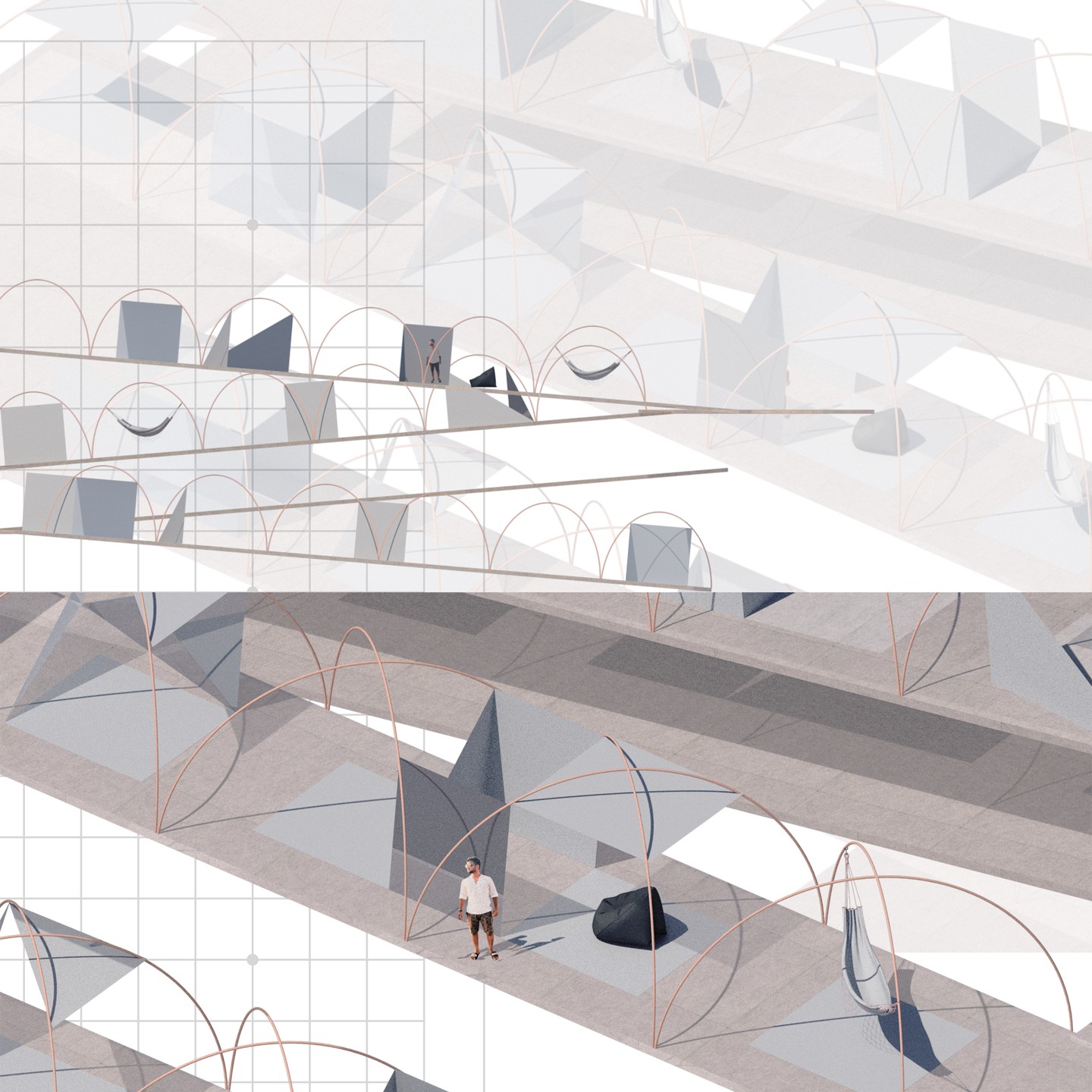
Fay Ran, MFA’25
In Transit
Temporary Community
In Transit re-imagines CHARAS’s legacy through a design lens, balancing personal growth and communal renewal. Drawing from Puerto Rican informal living patterns, it proposes adaptive, flexible interiors that offer low-income youth transitional spaces, fostering self-identity and belonging.
Thesis advisor: Frederic Levrat
#prattint2025book
#prattint2025bookmfa
#pratt_sod
#prattshows2025
#PrattGrad25
@prattinstitute
@pratt_sod
5 months ago
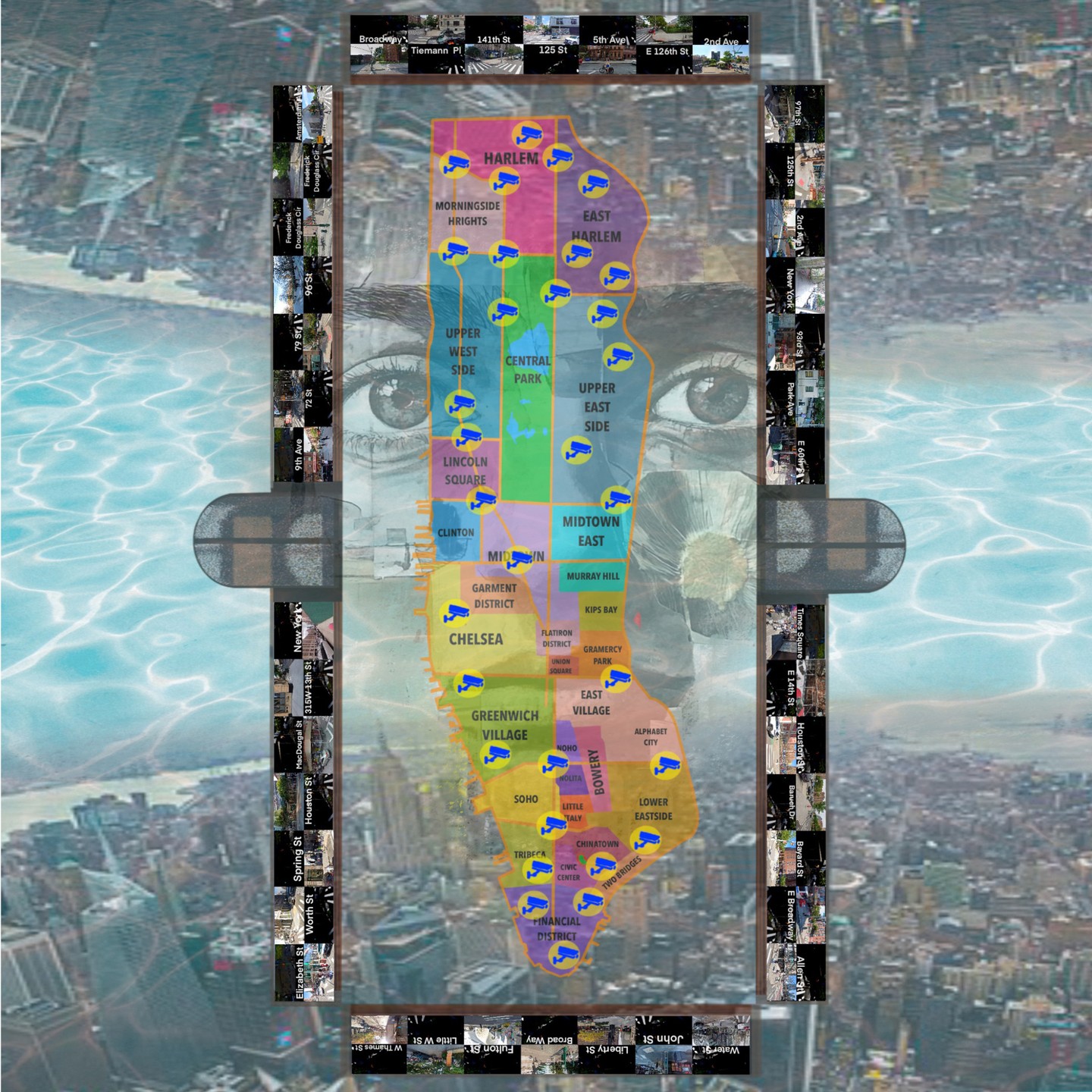
Moon Jung Choi, BFA’25
Color Equality renovates a pavilion in Chinatown’s Columbus Park into a space where survivors of anti-Asian hate crimes can heal. Spaces to therapeutically reenact and re-script trauma, share emotions with other survivors, and electronically monitor sites of previous attacks are designed to restore the agency taken during an attack.
Thesis advisor: Alexander Schweder
#prattint2025book
#prattint2025bookbfa
#pratt_sod
#prattshows2025
#PrattGrad25
@prattinstitute
@pratt_sod
5 months ago
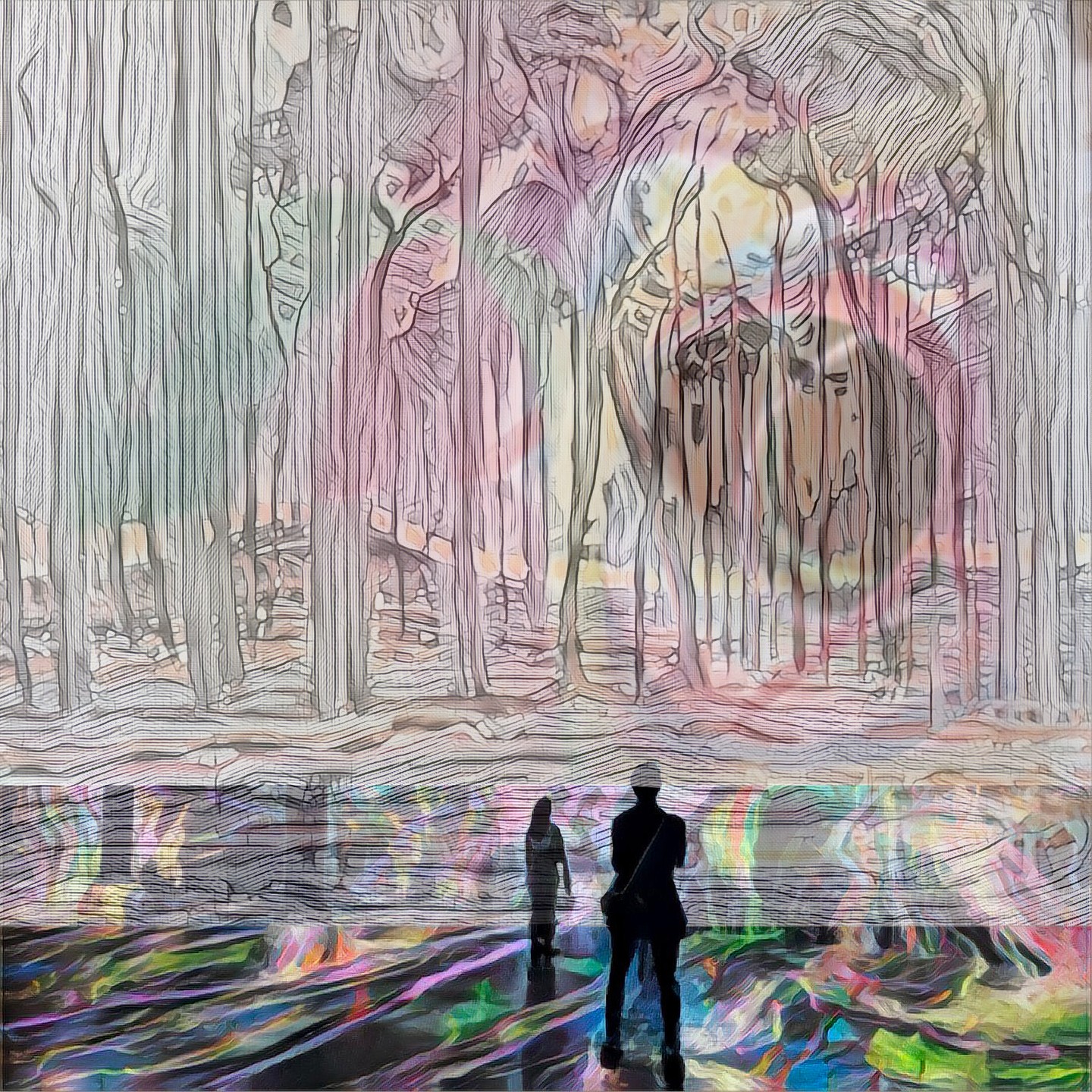
Ruoyan Wang, MFA’25
Hybrid Workspace Design for Enhanced Collaboration
Integrating Digital Twins, Augmented Reality, and Virtual Reality in an AI and IoT Research Institute.
This thesis explores creating a hybrid workspace that merges physical and virtual environments, utilizing digital twins, AR, and VR to support real-time interaction, collaboration, and seamless engagement between on-site and remote users. The design prioritizes flexibility, comfort, and sensory engagement, incorporating biophilic elements like green zones and adaptive lighting for well-being and productivity.
Thesis advisor: Stefanie Werner
#prattint2025book
#prattint2025bookmfa
#pratt_sod
#prattshows2025
#PrattGrad25
@prattinstitute
@pratt_sod
5 months ago
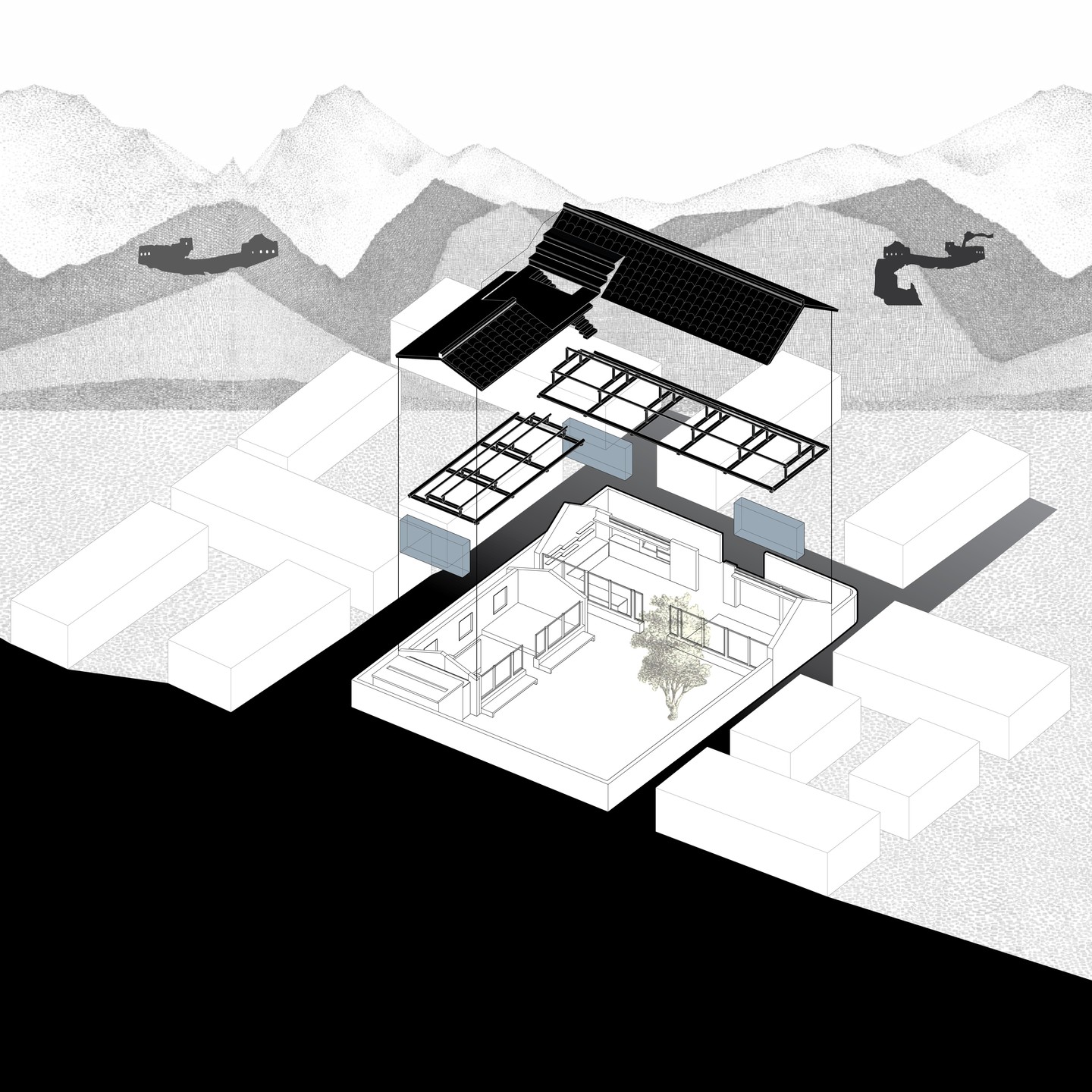
Wenxuan (Primrose) Zhang, BFA’25
Rural Revitalization: ReForm, ReUse, ReImagine
This thesis revitalizes Dongtai Village through spatial interventions that reconnect interior spaces to the Great Wall through adaptive reuse strategies. Addressing the challenges of rural revitalization, this project re-imagines the village’s architectural language to support contemporary rural life, ensuring the community will evolve and sustain itself rather than remaining a preserved relic.
Thesis advisor: Sarah Lippmann
#prattint2025book
#prattint2025bookbfa
#pratt_sod
#prattshows2025
#PrattGrad25
@prattinstitute
@pratt_sod
5 months ago
Gallery
/
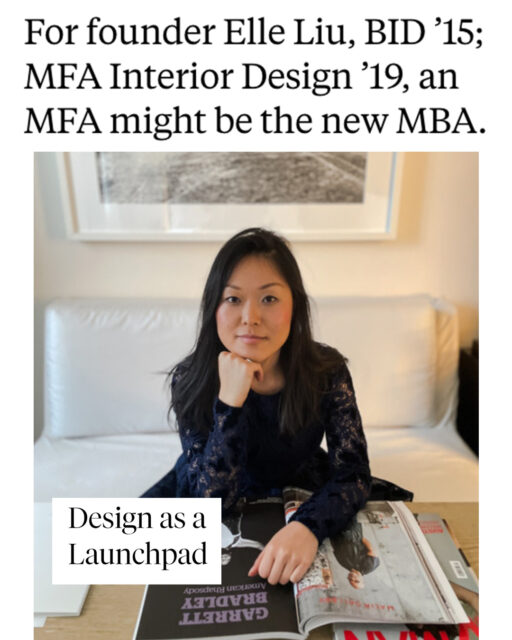
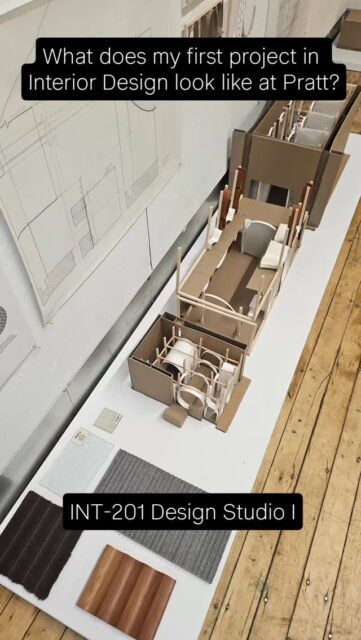
![cocoon[s]
MFA Core Design Studio · Spring 2025
The project was presented to the AIANY Center for Architecture - Design for Risk and Reconstruction committee, highlighting the students’ research and design approach to adaptive, community-centered resilience.
In response to the geopolitical fragmentation experienced by displaced and under housed communities, cocoon[s] explores how food is shared, prepared, and experienced when the idea of “home” is uncertain.
Through research on global displacement typologies from dry, remote terrains to dense urban zones - the studio examined housing systems, environmental health, and cultural dining rituals to understand how communal spaces evolve under crisis.
The proposal re-imagines a repurposed shipping container as a deploy-able, transportable module for food distribution and gathering. A tensile fabric network extends from its core, unfolding into adaptable enclosures that blur the boundary between interior and exterior offering both safeness and connection.
✨ Developed by Core Year MFA Design students:
Anjali Dave, Arianna Correa, Brissa Ramos, Elizabeth Hammett, Hang Min, Henry Domst, Jiahui Tang, Kathy Chiu, Katharine Oliver, Leah Toscano, Megan Pulling, Minqi Wu, Pornpitcha Ruampongpattana, Soohyun Ahn, and Stephen Shkreli.
Professors: Sheryl Kasak & Alvaro Gomez-Selles
@design_for_risk
@prattinstitute
@pratt_sod
@centerforarch
#pratt_sod #MFADesign #PrattDesign #DesignResearch #CoreStudio #Spring2025 #RefugeeArchitecture #AdaptiveDesign #FoodAndSpace #SpatialResilience](https://www.pratt.edu/design/wp-content/uploads/sites/6/2023/07/570127678_18095266450878342_4598715533788163756_n-640x640.jpg)
